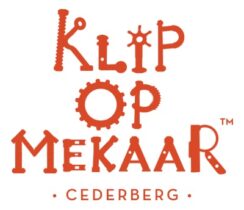Ethical Farming & Rooibos Certification
Certified organic (EU, JAS & NOP/USDA)
and UEBT / Rainforest Alliance (RA) rooibos
Klipopmekaar is committed to the well-being of our workers and their families, to the long-term preservation of the environment and sustainable farming, and to deliver rooibos products that are of exceptional quality and goodness to our valued customers.
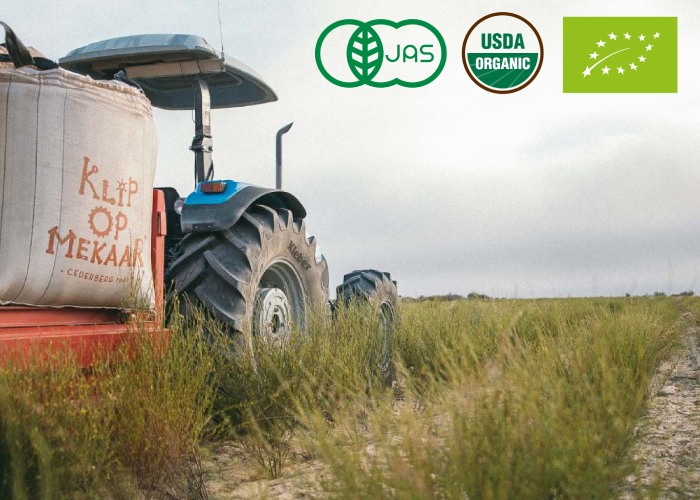
Certified Organic
Klipopmekaar's products and operations are certified organic by Ecocert SA to supply European (EU), Japanese (JAS) & North American (NOP/USDA) markets.
Not only are we certified organic, but we’re also the vanguard of the development of organic and regenerative farming techniques.
This includes researching new ways to organically cultivate rooibos seedlings, establishing new multi-seed rotation/cover crops programs, and the pioneering supplementary drip-irrigation of rooibos to mitigate against the effects of climate change.
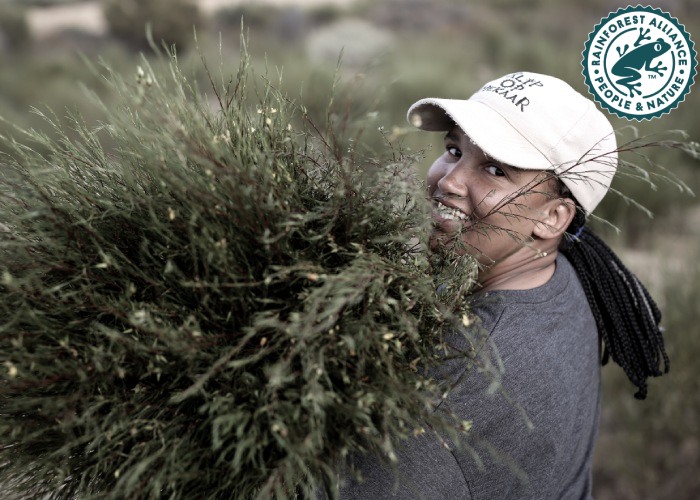
UEBT / Rainforest Alliance certified
All our organic rooibos is also UEBT / Rainforest Alliance certified as ethically and sustainably produced.
Klipopmekaar is building a future in which nature is protected and biodiversity flourishes; where farmers, workers, and communities prosper; and where sustainable land use and responsible business practices are the norm.

Kosher certified
Our rooibos products are certified Kosher by the Union of Orthodox Synagogues.
Ethically and sustainably produced rooibos
Regenerative Agriculture
Klipopmekaar practices no-till farming, which means that the living soil structures of our fields are carefully preserved and nurtured.
Conventional ploughing destroys soil structure and soil ecosystem integrity and damagingly releases carbon into the atmosphere. When preparing our fields for cultivation, they are ripped with custom developed tine implements which don’t overturn the soil but rather create deep un-invasive furrows for seedlings … which are then trans-planted with no-till planting machines, and by hand.
Multi-seed rotation/cover crops and nutrients are introduced using no-till planters, and used to build long-term soil health and green manure nutrients into the living soils.
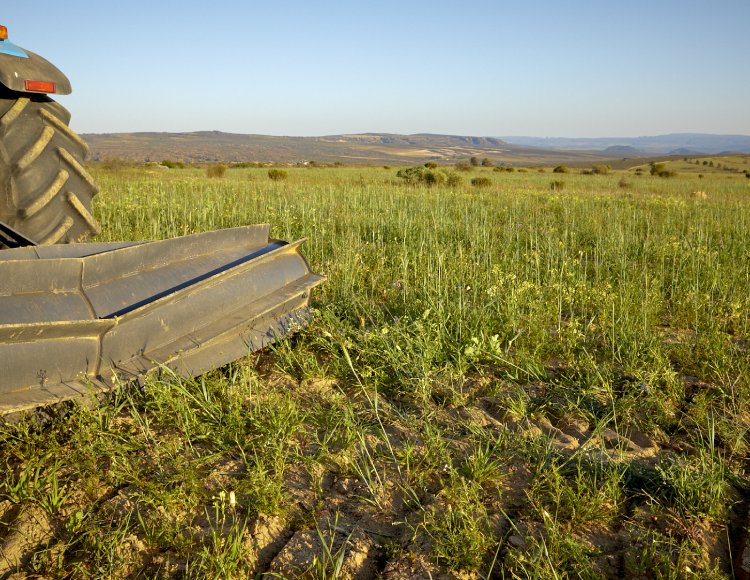
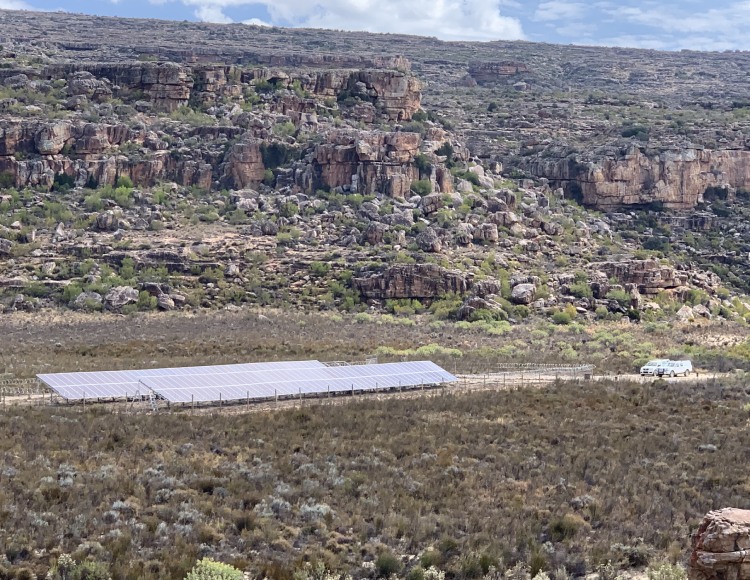
Renewable energy
Wherever possible renewable energy is used at Klipopmekaar. Since 2007 hundreds of kilowatts of solar power has been installed to power our operations.
All irrigation systems and farm-water-supply are exclusively solar-powered, and solar energy is also used to heat water at farm homes.
Green infrastructure
All the farm’s homes and buildings have been designed in a thermally intelligent manner to minimize heat transfer and maximize the living and working comfort of valued workers and their families.
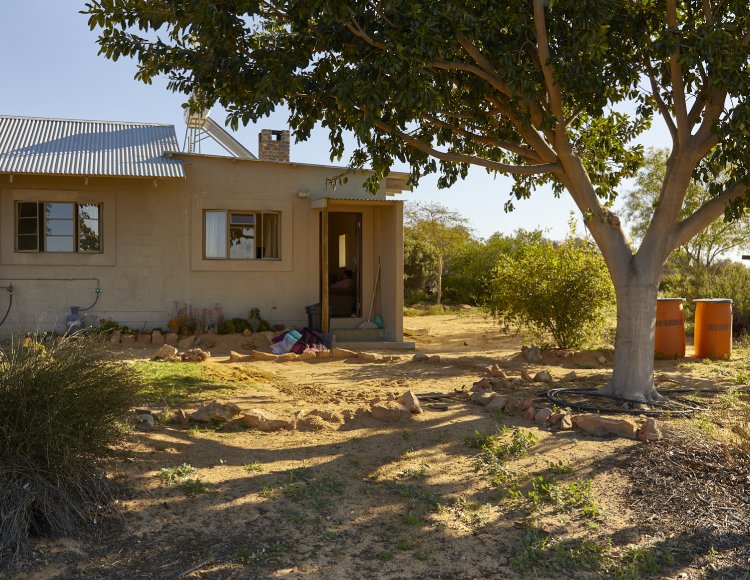

Biodiversity Preservation
Only 15% of Klipopmekaar is farmed, the other 85% (over 5000 HA) is preserved as pristine Cederberg mountain wilderness … at the heart of one of the most beautiful, species rich and bio-diverse regions in the world.
Veld strips of between 10m-15m are either left untouched or are cultivated within all our fields at 40-50m intervals. These fynbos strips create natural corridors for species migration, biodiversity preservation, wind erosion prevention and natural protection of the cultivated rooibos.
Recycling
All farm waste and trash is recycled as much as possible. Cans, glass and plastic are regularly transported to local recycling depots. Scrap steel is recycled, and the remainder is often re-used to create “upcycled” art installations on the farm.

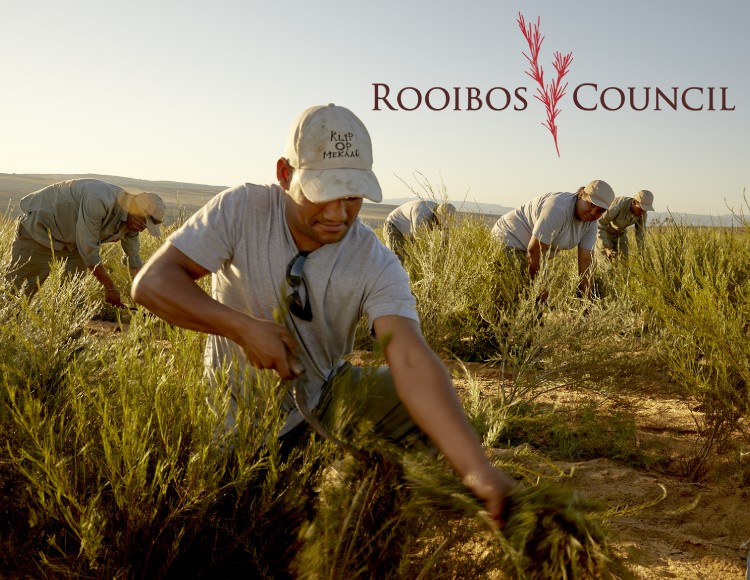
Right Rooibos
Klipopmekaar’s farmer, Richard Bowsher, served voluntarily on the Right Rooibos (formerly Rooibos Biodiversity Initiative) industry steering committee for a few years.
Right Rooibos was an industry conceived social, biodiversity, environmental and farming methods standard developed by the South African Rooibos Council. This best practices accreditation aims to improve farming, environmental and social practices of rooibos producers throughout the industry.
